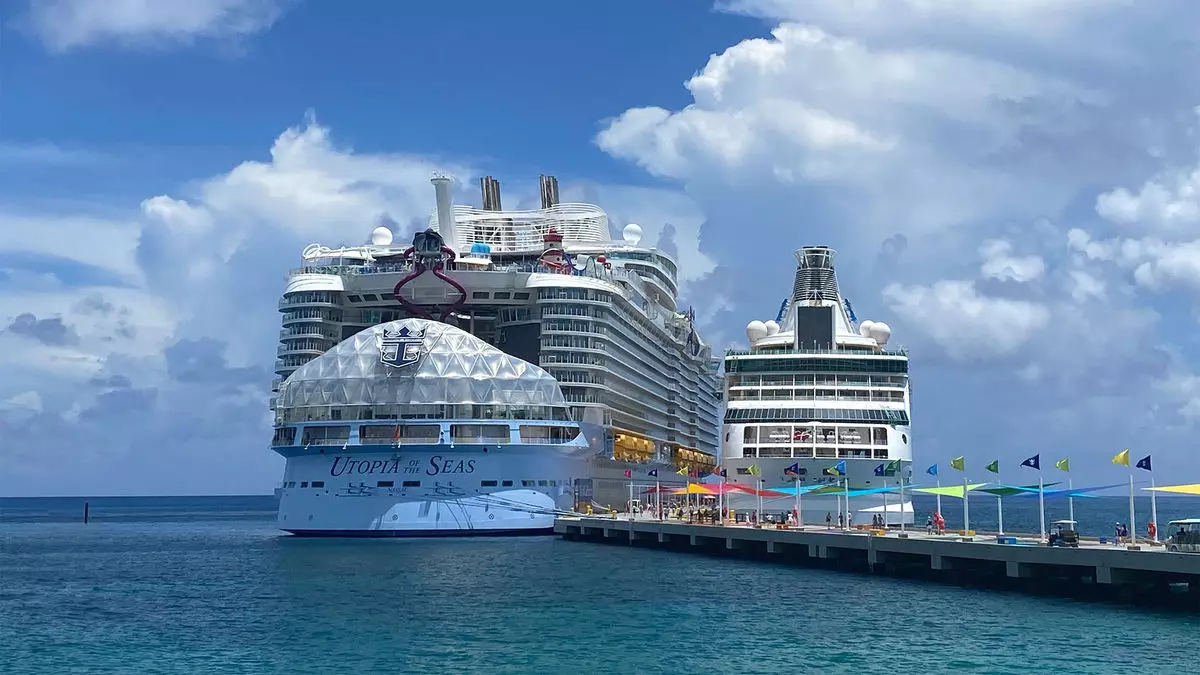In a recent earnings call, Royal Caribbean Group’s CEO, Jason Liberty, revealed significant trends shaping the cruise industry this year. With a considerable chunk of their clientele being first-time cruisers, the company is positioned to capture the attention of a newer, younger audience eager for seafaring adventures. Notably, the introduction of the Utopia of the Seas, the latest addition to Royal Caribbean’s fleet, has become a focal point in this narrative as it sets sail from Port Canaveral, Florida.
The Utopia of the Seas, launched in July, is designed not only to cater to seasoned travelers but specifically targets millennials and younger passengers. Liberty emphasized the overwhelming enthusiasm surrounding these cruises, which span three to four nights. Interestingly, the demand has outstripped expectations, particularly regarding ticket prices and potential onboard revenue. This optimistic outlook reflects a strategic alignment with contemporary leisure preferences, marking a pivotal shift in the demographic characteristics of cruise travelers.
Royal Caribbean has successfully tapped into the burgeoning trend of pre-cruise product purchases, with over 70% of guests opting to buy onboard activities ahead of their voyages. This proactive engagement not only enhances guest experience but also results in doubled spending compared to those who opt to make purchases onboard. The company reports that half of its onboard revenue in Q3 stemmed from AI-driven pre-booking systems, illustrating an innovative approach to maximizing sales potential.
Despite a turbulent economic backdrop, Liberty expressed confidence in the company’s trajectory. Booking patterns for 2025 have already exceeded expectations for 2024. The cruise industry continues to see high occupancy rates paired with elevated pricing structures, allowing for a fruitful optimization of revenue. The current economic climate favors this trend, as many American households boast increased wealth, steady job growth, and robust consumer spending, particularly in the leisure sector.
Liberty’s analysis highlights a significant uptick in spending on experiences and vacations, a trend aligned with the broader recovery of the travel industry post-pandemic. Notably, spending in leisure activities has surged, emphasizing the preference for unique experiences over tangible goods. This shift is particularly evident among millennials and families, who increasingly prioritize leisure travel, especially cruises.
In terms of financial performance, Royal Caribbean reported robust numbers for Q3, with net income reaching $1.1 billion compared to $1 billion last year. Revenue climbed to $4.9 billion, an increase from $4.1 billion. This remarkable performance has led the company to revise its earnings expectations for the remainder of the year, now forecasting yield growth between 10.8% and 11.3%.
Royal Caribbean Group is strategically navigating a growth phase characterized by a robust influx of new guests, innovative engagement tactics, and a resilient economic backdrop. By catering to a younger demographic alongside seasoned cruisers, the company is well-positioned to not only maintain but also expand its market presence in the coming years. As the industry evolves, Royal Caribbean’s proactive approach and robust financial performance illustrate its readiness to meet the changing demands of modern travelers on the high seas.


Leave a Reply